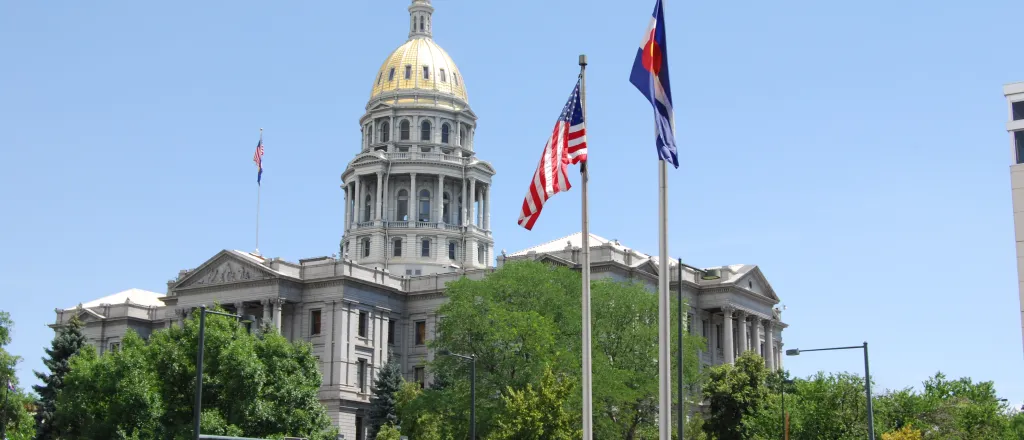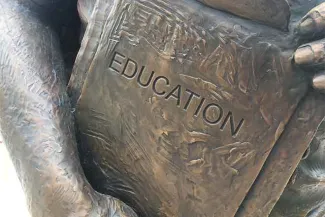
These bills on education passed the Colorado Legislature in 2025
The Colorado Legislature passed dozens of bills making changes to K-12 education in the state this year.
Some bills add new requirements for school districts and their policies while others relate to curriculum requirements for students. Lawmakers also approved a new school finance policy that extends the implementation of a new school finance formula approved last year amid budget shortfalls.
Colorado Gov. Jared Polis has signed a few education measures from the legislative session into law already while several others await his signature. The 2025 session ended last week.
Here are some other bills that came from the Legislature’s work on education.
Financial literacy
House Bill 25-1192 requires that school districts implement a financial literacy course as a graduation requirement for high school students.

Public high school students would need to pass a financial literacy class in their junior or senior year under the requirements of the bill. Colorado law currently encourages school districts to require financial literacy coursework for graduation, and about one-quarter of districts do so, according to the Colorado Department of Education.
The bipartisan measure would apply starting with students who are in the ninth grade starting in September 2026.
The class would need to cover the standards adopted by the State Board of Education in 2022, which include topics like household budgeting, saving, investing, using credit, and understanding the difference between leasing and buying large purchases like cars and homes.
The bill would also make completion of the federal or state financial aid form a condition for graduation. Students and parents would be able to opt out of that requirement.
Polis has not yet taken action on the bill.
Black education standards
House BIll 25-1149 directs the Colorado Department of Education to establish a 17-member advisory committee to help develop statewide K-12 curriculum on Black history and cultural studies.
The curriculum should represent “Black historical experiences through truthful, inclusive, complex narratives that connect with contemporary realities” and highlight “innovations and cultural contributions of Black people in Colorado, America, and the world,” the bill says.

© flickrcc - Alan Levine
Implementing a standardized Black history curriculum in our public schools ensures that students of all races and backgrounds receive a more complete education that prepares them to be informed, engaged citizens and honors the extensive contributions of Black Americans in shaping our state and nation.
The Trump administration has targeted DEI — diversity, equity and inclusion — initiatives particularly in educational institutions.
“Implementing a standardized Black history curriculum in our public schools ensures that students of all races and backgrounds receive a more complete education that prepares them to be informed, engaged citizens and honors the extensive contributions of Black Americans in shaping our state and nation,” Sen. Tony Exum, a Colorado Springs Democrat who sponsored the bill, said in a statement celebrating its passage.
The advisory committee will include experts on Black history and culture, teachers from rural and urban school districts, a librarian, curriculum specialists, community leaders, a parent in a public school parent organization and members of the Colorado Legislature, among others.
The timeline for implementing the new standards aligns with the six-year cycle the State Board of Education already uses for revising academic standards. Education providers will have two years to implement the standards after they are developed.
Polis has not yet taken action on the bill.
Cell phone use in schools
House Bill 25-1135 requires school districts to adopt policies on the use of cell phones and other communication devices during the school day.

© metamorworks . iStock-968113166
The bipartisan bill does not impose a ban on student cell phone use but intends to reduce classroom distractions and requires all Colorado schools, including charter schools, to adopt their own policies by July 2026.
“Many teachers already work hard to limit phone use in class, but they need backup,” Sen. Janice Marchman, a Loveland Democrat who sponsored the bill, said in a statement. “This new law gives local schools the support to set clear, consistent policies — so students can focus, learn, and take a real break from the pressures of constant connectivity.”
The policies must also consider accommodations for students who need access to a phone for medical reasons.
A 2023 advisory from the U.S. Surgeon General warns that social media use among young people is associated with poor mental health, especially among adolescent girls. Research also shows that cell phone use during instruction time has adverse effects on student learning.
Polis signed the bill into law at the start of May.
Library book ban policies
Senate Bill 25-63, dubbed the Freedom to Read Act, requires school districts to create policies about the “acquisition, retention, display, reconsideration, and use” of library books and other materials by September.
The measure intends to safeguard public school libraries from the growing trend that targets certain books, often about diverse topics or by diverse authors, for removal.

“This legislation creates a standard process to evaluate a book’s inclusion or removal from a library, further shielding our public school libraries from D.C. culture wars and political fights,” Rep. Jenny Willford, a Northglenn Democrat who sponsored the bill, said in a statement. “Schools are for learning, and our students deserve access to age-appropriate books that encourage them to think broadly and critically about the world.”
District policies will need to consider when and why library materials can be removed, and outline a process for challenging and removing books from circulation. Only parents of students in the school district will be allowed to challenge books, and reviews of individual books will be limited to once every two years.
In 2024, there were seven attempts to ban 137 books in public schools and libraries in Colorado, according to the American Library Association. The most challenged book in the country that year was “All Boys Aren’t Blue,” a memoir written for young adults by queer Black author George Johnson.
Polis signed the bill into law at the start of May.
















